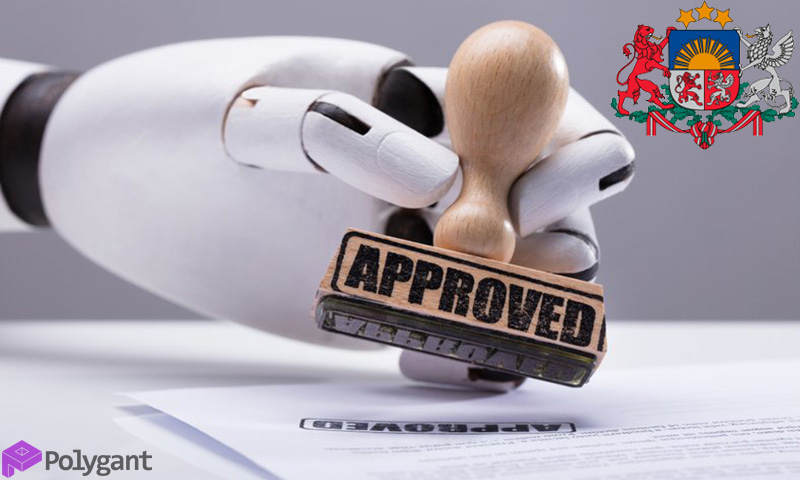The Latvian government plans to widely introduce artificial intelligence (AI) technologies in public administration and local government systems. It was announced in the newsletter ‘On the development of solutions in the field of artificial intelligence’ published by the Ministry of Environmental Protection and Regional Development and approved by the Cabinet of Ministers.
The Ministry of Environmental Protection and Regional Development (VARAM in Latvian) is the leading regulatory body in the country for the development and implementation of AI-based solutions. It is responsible for information technology in government, as well as for open and professional public administration. VARAM includes the Electronic Government Department and the Public Services Department.
Table of Contents
Digital transformation of Latvia
The ministry is also working on the ‘Digital Transformation Guidelines for 2021–2027.’ The document is likely to be finalised by the end of the year. As expected, the mass implementation of artificial intelligence will be part of the priorities described in the project.
Digital transformation will contribute to the European Commission’s policy to develop and use AI. Its main goal is to attract public and private investments of €20 billions annually from 2020 to 2029 and to direct them to finance research and implementation of AI.
Latvia will be able to receive up to €25 millions per year. A significant part of this amount will be distributed through specialised digital innovation hubs. The Ventspils High Technology Park, the Latvian IT Cluster Association, and the Institute of Electronics and Computer Science are endowed with such status in the republic.
AI in the civil service
For several years, artificial intelligence has been helping to solve routine management tasks in Latvia:
- Una virtual assistant helps businessmen register and liquidate companies
- Varis virtual assistant checks applicants for financial support in agriculture
- Photo radars recognize and identify vehicle numbers, as well as collect data to control traffic flows
- Hugo, a machine-learning app, translates texts from LAV to ENG and RUS, and vice versa, recognizes and synthesizes speech.
When the Cabinet of Ministers approves the digital transformation project, VARAM will additionally use AI in the following areas:
- Sector development planning, including political forecasting and budgeting.
- Virtual assistants and chatbots for a single system of websites of state and local authorities.
- Offering personalized public services. For example, a virtual assistant will offer young parents to send documents for registering the birth of a child and receiving social benefits.
Also, artificial intelligence will be used in pilot projects for forecasting the deadlines for litigation, accounting, and creating the architecture of intelligent transport systems. In the national defence, AI will help process intelligence and act as an operational and tactical means of support when making decisions at the command level.
The introduction of AI in the public sector will speed up the work of institutions. People will be able to receive answers to their requests within two days, for example, grant applications or refund of the overpayment. The assessment of the conformity of construction projects with construction requirements will be partly automated. Experts are exploring the possibility of a virtual assistant participating in consular issues, using machine learning in ambulance work, and even in anti-corruption analytics. Machines could identify cases where the same construction company, the owner of which makes donations to the ruling party, often wins municipal competitions.
The governments of neighbouring countries—Belarus, Lithuania, Russia, and Estonia—are looking forward to developing relations with artificial intelligence.


